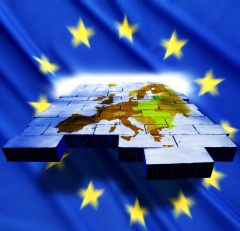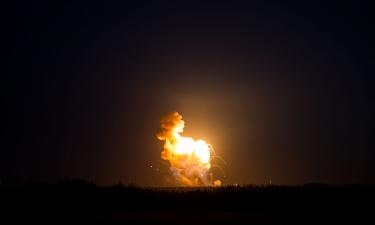European Union kicks the bucket reminding of the USSR collapse
It is obvious that the European economy has lost its strength
The European Union is probably going through the hardest times in its history. It is not the EU Constitution failure only; this famous episode is just an illustration to all the problems that had been accumulating for a long time. One of the main problems is dramatic deterioration of the competitiveness of the European economics, especially in the Euro-Zone. It may sound absurd because just some years ago in 2000 the EU marked the Lisbon Strategy according to which in 10 years euro economics had to become the most competitive and dynamic in the world with Euro-Zone being the most important mechanism of this strategy. Strangely enough, growth impairment and other economic mess started right then.
Recent alarming news came from France. According to French National Council for Statistical Information (CNIS) during the first six months of this year 26,146 enterprises went bankrupt, which is an absolute record. If this tendency continues the number will rise to 50 thousand at the end of the year. The majority of ruined enterprises was operating in construction, service sector and commerce. The statisticians predict economic recession for France in the nearest future. The reasons for this are all present. High prices for raw materials and energy carriers increase the costs of production. The aggravation of competition, mainly from Chinese manufacturers, makes the local business climb down. Not so long ago the EU and the US reached an agreement with China which will limit the latter's textile exports: the yearly export cannot exceed 8-12.5 percent in the EU and 7.5 percent in the US. However this cannot solve all the problems: exports from China to the EU will go on growing no matter what, because too many enterprises are now moving from Europe to China with an orientation to the European markets.
The problem goes far beyond the energy carriers' costs and competition with China. It is obvious that the European economy has lost its strength. Oil and raw materials became more expensive for all the advanced nations. However, it is only Europe that slowed down so much. China is overcrowding the US, Japan as well as other countries with its exports but the most vulnerable turn out to be the European manufacturers…Europe has been lagging behind the US in the recent years in terms of labor productivity: 10 years ago it accounted for 97 percent of American labor productivity and this year it is going to be not more than 88 percent.
Economists say that Europe has many problems: excessive governmental control of the economics, cost-is-no-object approach of the welfare state and corresponding enormous taxes, difference in development between old and new members of the union, shortage of internal energy resources…However, the main problem behind all of the mentioned above is probably the fact that the EU is now following in the Soviet Union's footsteps. It is becoming more an experiment, a country with “conceptual” development. There were constructing socialism and the USSR, the EU is aimed at closer integration of the European nations. It is less a less dogmatic construction, but still it needs regulation of economics and of many other spheres to become a reality. Those spheres are set on the right track day in day out. This has its side effects, which often cause the overexertion of the construction itself and its resources. Suppose that integration programs (economic integration and regions adjustment, developing infrastructure, energy security and so on) involve great expenses, which leads to a high level of taxation in the EU states. This in its turn has a negative effect on investments. And here we have a business decline. Moreover, the bureaucracy also costs a lot (in terms of standard of well-being euro bureaucrats can only be compared with some of the American high officials).
The most important contributors of Brussels have more influence in its politics. France, for instance, is making use of a great part of the 40 percent of the budget spent on agricultural. As a result farmer's competitiveness is artificially raised which leads to hypotrophical development of agriculture. At the same time problems that may be more acute (science development, for instance) cannot be solved because of the shortage in finance.
Finally, the on-going expansion of the European Union results in significant expense and makes the construction hard to manage. In other words, the EU finds it more and more difficult to compete with other states that do not construct anything. The USA almost always followed liberal economic model whereas China is developing socialism with “capitalistic face.” It is Russia that still has not found its position. It would not mind constructing something conceptual as well: liberal empire, for instance. In this sense Russia is close to the EU. It is likely that at the moment European Union is repeating Russia's past while teaching it democracy. Russia did not get any positive results of its construction. Maybe Europe will be luckier. At least it is not involved into arms race yet (which destroyed Soviet economics). However, it is known that the European armed forces already exist in addition to those of each of EU members. Meanwhile, the confrontation with the Islamic world together with strategic competition with China may lead to increase in military expenditure in peaceful Europe.
Subscribe to Pravda.Ru Telegram channel, Facebook, RSS!





